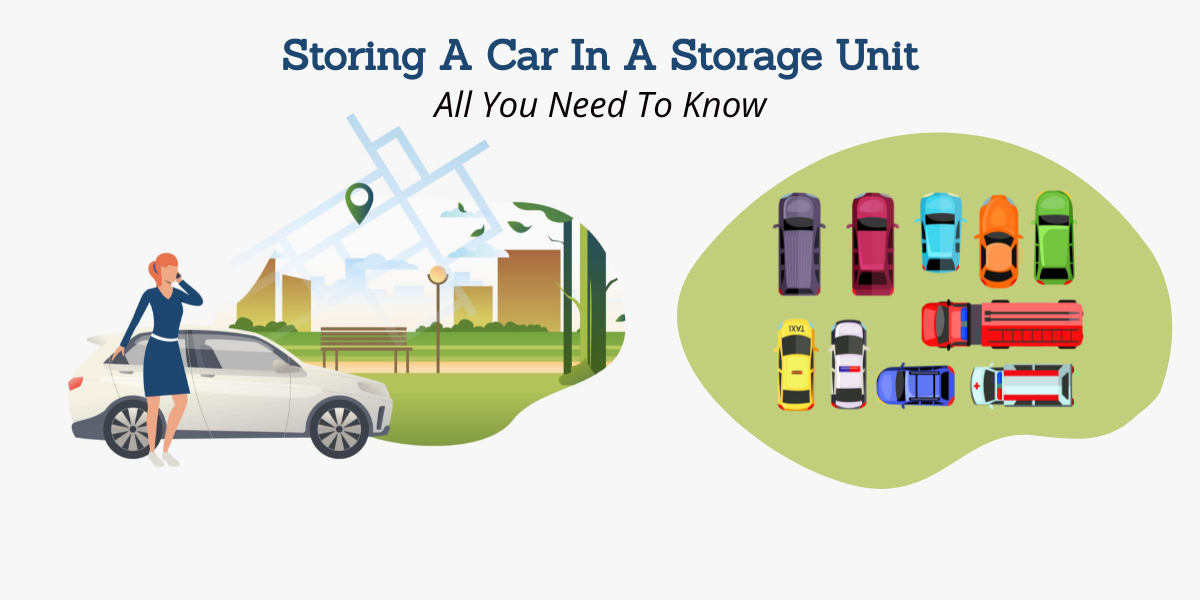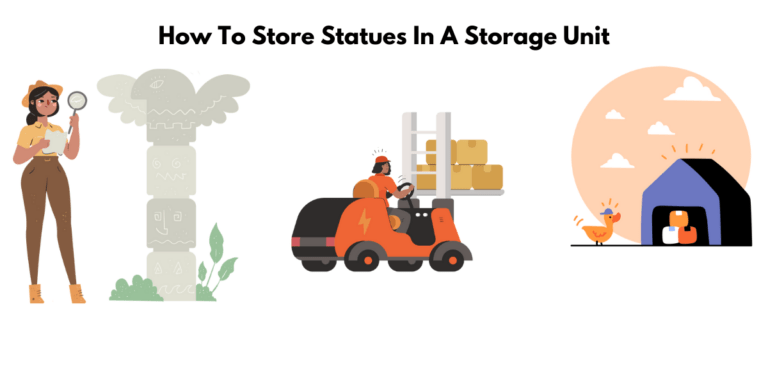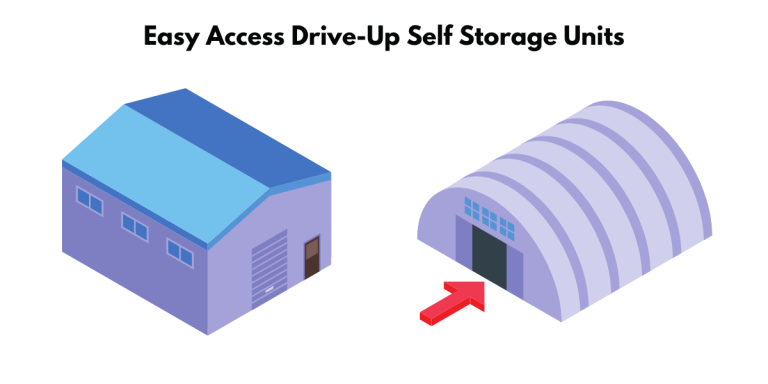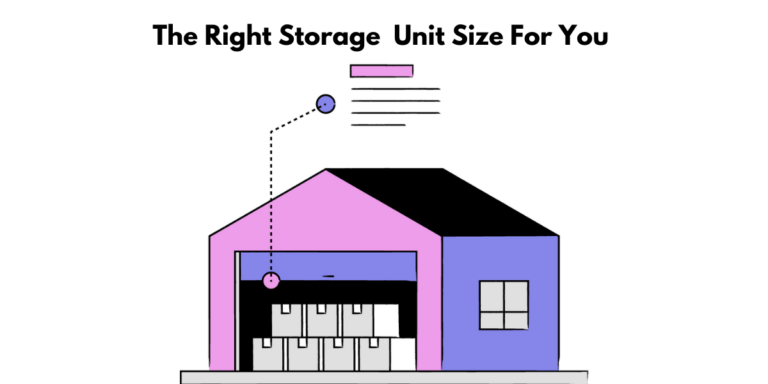Storage Units for a Car: 4 types of long term storage options for cars
Storage units for a car
Finding the right storage unit to store and protect your car can seem daunting.
However, with the right information and resources, you can find a safe and secure car storage unit that meets your needs.
We’ll explore the different types of car storage units available, the dimensions required to store a car, and some best practices for storing any automobile.
With the help of a professional storage company, you can find the perfect car storage solution that fits all your needs.
Keeping a car in a storage unit
Keeping a car in a storage unit can be an ideal solution for classic car and sports car owners who don’t have the space to store their vehicles during the winter months.
By utilizing the secure and safe environment of a self-storage facility, car owners can protect their vehicles from inclement weather and ensure they remain in top condition over the winter.
When preparing to store a car, there are a few important steps, such as winterizing, cleaning, and ensuring that the registration and insurance are current.
Additionally, it’s important to select the right storage unit for your vehicle, which should have a comfortable amount of room and access and provide the necessary security measures to ensure your vehicle’s safety.

What are some tips for storing a car in a storage unit?
You’ll want to keep a few things in mind when storing a car in a storage unit.
Here are some tips to ensure your car is ready for long term storage.
Determine storage unit size
To determine the size of the storage unit you will need for your car, and you must consider the car you are storing and the available space.
The size of the storage unit will also depend on whether you plan to store other items in the unit along with your car.
A smaller car, such as a crossover, will require a smaller storage unit than a larger vehicle, such as an SUV or minivan.
If you have limited space, you may need to choose a smaller storage unit or one designed specifically for cars.
Change the oil, filter, and coolant
Changing your car’s oil, brake fluid, and coolant is important before storing it.
Driving your car briefly will help circulate the fluids and avoid engine harm caused by old oil.
To avoid contaminating your storage unit, change your car’s oil, filter, and coolant before storing it.
Fill the fuel tank
Filling your car’s fuel tank before storing it for a long period can help prevent rust and corrosion.
Water can build up in an empty fuel tank and cause corrosion.
Filling the tank will prevent this from happening.
Using a fuel stabilizer will also help keep the fuel fresh and prevent it from turning into varnish or damaging the engine.
Wipe out your wiper blades
Wiper blades should be stored inside the car and cleaned before storage to prevent rust and corrosion.
Before storing the wipers, the car should be washed thoroughly, including the underside.
This will remove any grit and dirt that can accumulate on the blades.
The car should be waxed if desired to protect the finish.
Protect the battery
To protect the battery when storing a car in a storage unit, remove it and put it on a float or trickle charger.
This will keep the battery charged and prevent it from being damaged.
Surround the car with cedar/moth balls
Remove the antenna and windshield wipers to keep your car safe from pests while in storage, back the car in, disengage the parking brake, and block the exhaust pipe.
Store the car on blocks or jacks to avoid flat-spotting. Leave jumper cables in the trunk if you need to jump-start the car.
Lock the car and put on the car cover.
Use cedar balls or moth balls around your vehicle to keep pests away.
Stabilize that fuel
Before storing your car in a storage unit, it is recommended to use a fuel stabilizer and top off the fuel tank.
This will help prevent moisture from accumulating and causing corrosion and rust.
Check up on the vehicle when possible
It’s important to check up on your vehicle stored in the storage unit every two weeks to ensure it’s in good condition and to prevent any issues.
Checking the unit for leaks and humidity and inspecting the car for any damage or signs of pests is crucial.
You should also drive the car out of the storage unit slowly to ensure everything works correctly before storing it again.
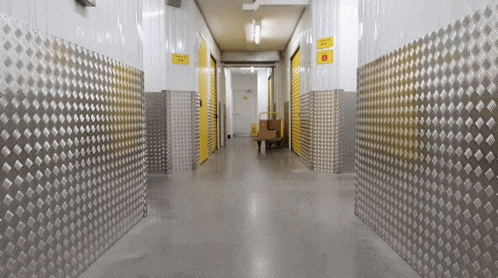
4 types of storage for cars
Whether you’re looking to store your car for the winter or longer, you have a few options.
There are four primary types of car storage: indoor, outdoor, covered, and drive-up storage units.
Each option offers a variety of benefits to suit your budget, vehicle size, expected length of storage, and more.
No matter what your needs are, there is a car storage option that is right for you.
Indoor car storage
Indoor car storage is a type of vehicle storage that offers protection from the elements, such as sun, rain, snow, wind, dirt, and dust.
It typically involves renting a personal storage space accessible only by vehicle owners and facility staff.
Indoor car storage offers the highest level of protection and is ideal for those looking for long term car storage solutions or storing their vehicle in an area with harsh weather.
It is also ideal for those who don’t have enough space on their property to store a vehicle.
Drive-up storage units are available in various sizes, and most storage facilities also offer 24-hour access to their units.
Here are the benefits of indoor car storage:
- Protection from sun, snow, hail, and other elements.
- Convenient access to a car.
- More affordable than indoor storage.
- Dust protection with car covers.
- Winterization of classic and sports cars.
- Safe environment for car storage.
- Easy accommodation of cars of all sizes.
Outdoor car storage
Outdoor car storage is a storage option for cars in which they are parked in a secure, outdoor space at a self-storage facility.
These parking spaces typically start at 20 ft. and accommodate cars, SUVs, work trucks, recreational vehicles, and even RVs.
Outdoor parking is fenced-in and behind an access-controlled gate and is often the least expensive option among car storage solutions.
For protection against the elements, many people opt for a car cover when choosing outdoor car storage for a long period.
Here are the benefits of outdoor car storage:
- Outdoor car storage is generally more affordable than indoor storage options.
- Outdoor car storage units are flexible and can be easily sized for all types of vehicles, including RVs and motorhomes.
- You can rent auto storage in large cities when public transportation becomes more convenient.
Covered car storage
Covered car storage is an intermediate form of car storage between indoor and outdoor storage.
It includes a roof to protect your vehicle from the sun and other elements and offers better protection than outdoor storage at a more affordable price than indoor storage.
Covered storage often consists of a roof with no walls, also known as a ramada. It can protect from hail, rain, and snow and limit UV ray exposure.
Covered car storage may be found within a self-storage facility and can be either uncovered or covered parking spaces.
Uncovered parking is the more flexible and affordable option, while covered parking provides a roof to protect your vehicle from the elements.
Enclosed vehicle storage is the most protective option and is found indoors. It can range from a personal storage space to a large warehouse.
Here are the benefits of covered car storage:
- Protects vehicle from sun, snow, hail, and other elements.
- More affordable than indoor storage.
- The auto cover protects from the sun and precipitation.
- Fenced and well-lit perimeter for security.
- An added layer of protection from hail, rain, and snow.
- Limits UV ray exposure.
- Cheaper than standard outdoor parking.
Drive-up storage unit
A drive-up storage unit is a self-storage unit that provides an indoor, garage-like space for cars and other vehicles.
These units have varying sizes, allowing for storing anything from a compact car to a large pickup truck or commercial cargo van.
They protect from weather conditions and are ideal for long term car storage, storing classic or sports cars, or storing a vehicle in an area with harsh weather conditions.
Drive-up storage units must be large enough to fit vehicles, accessible with a drive-up entrance, and provide safety features such as around-the-clock camera monitoring and sturdy metal partitions.
Here are the benefits of a drive-up storage unit:
- Drive-up storage units provide indoor, garage-like storage space for cars.
- It can store anything from a compact car to a large pickup truck or commercial cargo van.
- Great for long term car storage, classic or sports cars, or a vehicle in an area with harsh weather conditions.
- Offers protection for your vehicle.
- 24/7/365 access to your vehicle.
- Clean, updated facility with secure access.
- Sturdy metal partitions to separate units.
- Around-the-clock camera monitoring.
- Options for different vehicle lengths and heights.
- Convenient vehicle access when needed.
- Secure location to store a vehicle.
- Affordable rates.

What are some challenges associated with storing a car in a storage unit?
Some challenges associated with storing a car in a storage unit include climate control, accessibility, theft, and vandalism.
Additionally, keeping track of a car’s location in a storage unit can be difficult because of the large number of units and the lack of signage.
Finding a storage unit that is the right size for your car
Storage units come in different sizes, so finding one that will fit your car snugly is important.
You don’t want your car to be too loose in the storage unit, as this could cause damage to your car or make it more difficult to retrieve later on.
Ensuring that your car is properly maintained while in storage
When placing your car into storage, you want to ensure it is properly maintained.
One of the challenges associated with storing a car in a storage unit is ensuring the car’s finish is protected.
Another challenge is keeping the oil and fluids levels topped off and replacing any low or expired ones.
Car storage facilities offer maintenance services to ensure your car is always in good shape.
Services include battery maintenance, car starting, exercise, and tire pressure checks.
Protecting your car from the elements
Invest in a car cover to protect your car from the elements in storage.
Indoor storage units are the most protective and ideal for storing your car during harsh weather conditions.
Storage space should be located in good weather all year round.
A covered unit is a good compromise between weather protection and cost.
Keeping your car safe from theft or vandalism
When storing your car in a storage unit, it is important to take precautions to prevent theft or vandalism.
Remove all valuables from the car and lock the car and storage unit with a strong lock.
The car should be kept in a well-lit and secure location.
Preventing your car from flat spotting
To prevent your car’s tires from flat spotting while in storage, jack it up or rest it on blocks.
This takes the pressure off the tires and prevents them from decompressing and flattening over time.
You should also check the tire pressure periodically and drive the car around occasionally to keep the tires from going flat.
Finally, using suspension supports can help increase your car’s lifespan.

What are some of the most common mistakes people make when storing a car in a storage unit?
People often make the mistake of not properly packing their car to protect it from damage.
Additionally, people often forget to bring important documents such as a title deed or proof of insurance.
Not cleaning the car before storing it
It is important to clean the car before storing it in a storage unit.
This will help keep it in excellent condition and prevent any damage from debris or moisture.
Waxing the car before storing it will also provide extra protection.
Not inflating the tires
One of the most common mistakes people make when storing a car in a storage unit is not inflating the tires.
Over time, the pressure of tires in storage will reduce, which can lead to flat spots.
Tires can also develop flat spots when stored in long term storage.
Block or jack stands should be used to raise the car off the ground to prevent t it from flattening its tires over time.
Not filling up the gas tank
One of the most common mistakes people make when storing a car in a storage unit is not filling up the gas tank.
This can lead to water build-up, leading to rust and deterioration.
To prevent this, you should fill up your gas tank and add a fuel stabilizer to help keep the gas from deteriorating over time.
Additionally, it’s a good idea to fill up with premium fuel to avoid condensation.
Not storing the car in a covered space
Covered car storage is cheaper and more weather-resistant than indoor or outdoor storage.
You can choose between indoor, outdoor, or covered storage based on your budget, local weather conditions, or the level of protection you need for your car.
Indoor storage is the best option for protection from the weather.
A covered storage unit is a happy medium between indoor and outdoor options.
Not checking on the car regularly
It is important to check on the car regularly and ensure it is dry and moisture-free.
Regularly checking the car’s engine and parts will help it run smoothly and prevent problems from developing.
Checking the car every few months is a good way to break up build-up and check for any specific issues that may be developing.
Keeping the car stored safely will prolong its lifespan.
FAQs
Here are some of the most frequently asked questions about storing a car in a self-storage unit:
Can you put your car into storage?
It depends on the type of storage.
If you are storing your car in a self-storage facility, you likely cannot put your car into storage.
How long can you leave a car in storage?
You can leave a car in a storage unit for as long as possible if the vehicle has not been damaged and is properly registered.
What do you need to store a vehicle in self-storage?
You must bring the following items when you store your vehicle in self-storage:
- a driver’s license
- proof of insurance
- vehicle registration
What is the average price of a car storage unit?
The average price of a car storage unit depends on the size and type of unit, but it is typically around $60 per month.
How much gas do you leave in a stored car?
The answer to this question is difficult to quantify as it would depend on various factors, including the make and model of the car, how many people are in the car, and where the car is parked.
Generally speaking, most experts recommend leaving at least a half tank of gas in the car in case of an emergency.
What size storage is needed for a car?
The size of storage needed for a car depends on the type of car and the amount of space needed for other items.
A 10′ x 20′ storage unit is recommended for most cars, though compact cars may only need a 10′ x 15′ unit. For larger vehicles, such as trucks and modified vehicles, a 10′ x 25′, 10′ x 30′, or 10′ x 35′ unit may be needed.
Some facilities may offer vehicle storage units up to 50 feet long for RVs and sizable trailers.
Compact cars and four-door sedans usually range from 12 feet in depth to around 15 feet, while larger sedans, SUVs, small trucks, and crossovers can range from 15 feet to over 19 feet.
- Top Drive-Up Self Storage Units: Easy Access & Flexible Space - January 26, 2024
- Storage Units for a Car: 4 types of long term storage options for cars - January 12, 2022
- From Big Carpets to Smaller Rugs: The proper preparation before you store rugs in a storage unit - December 15, 2021

